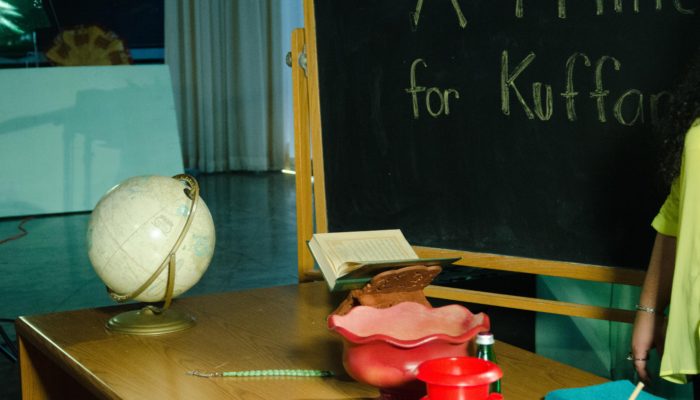Written by Dr. Nadhir Mahmood Abed
Translated by Umniyah Nadhir Mahmood
Alone, I crawl within three walls and a fourth made of iron bars. The walls of my solitary confinement cell measured thirty six squared meters just like the six months I’ve spent here, desolated. Summer passed, winter followed in this cell; cold like a grave during winter and boiling like hell during summer. I face the unknown.
All the other cells on this floor are empty. The ground floor was full of prisoners waiting for the unjust call of justice by the Thoura (Revolution) Court. In that court, justice is a slave to Saddam’s impetuosity. Once the prisoners were sentenced, which was mostly death, they never came back. These cells are part of Abu Ghraib’s damned prison.
This specific part was made only for soldiers and officers who were drafted to the army, like me. As soon as I finished my medical training, I was taken to war, like my colleagues, and I was drafted as an officer. The orders were to keep me in a solitary cell because I was an officer and they wanted to separate me from the soldiers. It is their plan to keep the soldiers separated from the officers to cut the last thread of strength in those men. I stayed in Abu Ghraib not knowing anything about my family since 1984, it’s been a year now.
While in prison, all I knew was that they arrested my father, my brothers, my uncle, my cousins, and myself; they had a list of accusations that I know nothing of. My only guilt was never being a Ba’athist.
In 1982, they executed my brother and three of my cousins who were mere teenagers; as I found out later on. Some of the accusations were “they are Shia, and they belong to an opposing religious party” which is ridiculous, for I never was a religious person. My brother was not a man of religion. He was a liberal man and a human who longed for freedom. My cousins, they were mere kids, didn’t even begin high school.
Everyday, I repeated these same thoughts, trying to find where we went wrong and what we did to deserve this. Once, as I was thinking, I saw a little cat. That little cat came between the bars seeking leftover food, which I gladly traded for happiness.
The cat became my pet and only friend in this desolated cell. I used to worry that the guards might see it. They made sure I didn’t talk to anyone, not even to them. When they let me out to use the bathroom they banged the bars with plastic sticks to signal me to get out, and then bang the wall to signal me to get back in. Especially, one man, the harshest guard. He was a Bedouin with a fogey, depressing face, a face bare of emotions, a face for Ba’ath. He would try to sneak up on me while I was in my cell, to catch me doing something that he could punish me for. Once, he caught me exercising and yelled “No working out!” I laughed, “What will you do?” He answered, “If I catch you again, you will know.” He never caught me again.
Walking in the sun wasn’t allowed. I was allowed to go out in the sun only once, and when I went out I wasn’t able to open my eyes for a while, and as I was finally able to open them, they took me back to my cell.
The cat was my only family, it was my whole world. It would look at me as I spoke to it, and as my tears rolled down my face, it would crawl in my lap and put it’s head next to my hand as if it was saying “It’s ok”. I was petting the cat once and it wasn’t until it was too late that I sensed that guard standing behind me. I stopped petting the cat, and he looked at me daring and hating as if I was his father’s murderer; He left for only a minute then came back with the keys, and I knew he was going to come in and beat me. Yet when he opened the door, he went straight for the cat and it hit it on the head. I ran towards him trying to protect my cat, but he started beating me till I fell, then he went back to beating the cat. My attempts to save my friend went to waste. Afterwards, he held the cat by it’s tail, he looked at me and smiled, then threw my friend in a trashcan outside my cell, and walked away.
____________
1 Translator note: Saddam’s system was built to keep the people in the dark. A lot of people did not know anything about their loved ones, who were taken by Saddam’s men, until after 2003.
Nadhir Mahmood Abed was born in 1955, in Baghdad. A pediatrician and a survivor. Was a political prisoner during Saddam’s regime. The piece Saddam’s Prison describes one of the incidents which he went through as a prisoner in Abu Ghraib. He currently lives and works in Baghdad.


